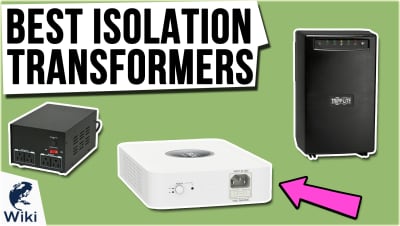5 Organizations Helping Entrepreneurs Succeed
The ability to start and grow a business is an essential component to the American Dream, and we don't want to let that dream become a thing of the past. These groups work with passionate individuals to help them throughout the process of starting a company, managing finances, getting ideas off the ground, and watching their projects grow so they can see their hard work pay off. This video was made with Ezvid Wikimaker.
5 Helpful Groups For Business Owners
| Name | Headquarters | Purpose |
|---|---|---|
| National Association for the Self-Employed | Annapolis Junction, MD | Supports member businesses with insurance benefits, access to reduced-cost office supplies, legal assistance, advocating for legislation, tax experts, and more |
| Rising Tide Capital | Jersey City, NJ | Fights unemployment, working poverty, and underemployment by encouraging entrepreneurship through education, mentoring, coaching and access to capital. |
| Grameen America | New York, NY | Helps disadvantaged women realize their business goals and achieve economic stability and inclusion with a multi-step process involving support groups, financial training, and microloans |
| QB3 | San Francisco, CA | The University of California’s hub for innovation and entrepreneurship in life science, supports researchers and empowers Bay Area business owners to launch startups through fellowships, incubators, incorporation assistance, two seed-stage venture capital firms, and a special initiative in health technology |
| Burton D. Morgan Foundation | Hudson, OH | Funds educational programs and initiatives that use mentoring, knowledge sharing, and research in order to cultivate skills and directly support enterprising individuals in Northeast Ohio |
An Introduction To The NASE
U.S. Small Business Statistics
According to the U.S. Small Business Administration, as of 2018
- There are 30.2 million small businesses in the United States
- These make up 99.9% of all U.S. businesses
- They employ 58.9 million people
- These make up 47.5% of all U.S. employees
- Of the 294,834 U.S. companies that exported goods in 2015, 97.6% were small firms
The Founders of Rising Tide Capital Discuss Its Mission
Men & Women In The Workforce
The percentage of men & women in the civilian labor force over time, according to the U.S. Department of Labor
| Year | Women | Men |
|---|---|---|
| 1950 | 29.6% | 70.4% |
| 1960 | 33.4% | 66.6% |
| 1970 | 38.1% | 61.9% |
| 1980 | 42.5% | 57.5% |
| 1990 | 45.2% | 54.8% |
| 2000 | 46.5% | 53.5% |
| 2010 | 46.7% | 53.3% |
How QB3 Helps Startups Succeed
Smart Business Books For Entrepreneurs
In Depth
Starting and growing a business is a major endeavor, one that requires time, money, and a range of resources and professional connections. It's not an easy task by any means, but thankfully there are many organizations dedicated to making the process much less strenuous. Providing funding, technical assistance, crucial networking opportunities, and more, here are, in no particular order, five groups ensuring that entrepreneurs have the tools they need to succeed.
At #1 is the National Association for the Self-Employed. Established in 1981, the N.A.S.E. gives entrepreneurs and micro-businesses day-to-day support through benefits, access to experts, published articles and guides, and consolidated buying power. It offers members a full range of services that cut costs on everything from legal assistance to office supplies, and provides unrestricted access to consultants who can advise on areas such as management and marketing. Additionally, the group awards monthly grants to help people grow their businesses, and gives educational scholarships to members' dependents.
The N.A.S.E. makes a national impact by representing its members on Capitol Hill, and effects change by advocating for legislation that supports small businesses and the self-employed. Complementing these on-the-ground efforts is its virtual Legislative Action Center, which serves as a platform for business owners to share their concerns with policymakers. To ensure that it's up to date and optimally attuned to its members' needs, the N.A.S.E. also organizes nationwide surveys on subjects including retirement security, taxes, and healthcare. Get involved by joining the Association's membership network at your chosen level.
To ensure that it's up to date and optimally attuned to its members' needs, the N.A.S.E. also organizes nationwide surveys on subjects including retirement security, taxes, and healthcare.
For #2 we get Rising Tide Capital. Fueled by the belief that strong, diverse entrepreneurs are critical to a flourishing economy, RTC supplies under-resourced individuals with the development services they need to nurture their enterprises and transform communities. By offering business management education, plus access to financial resources and mentorship and networking opportunities, it strives to boost individuals' incomes, motivate economic self-sufficiency, and invigorate the overall job market. RTC serves over 1,000 entrepreneurs each year, and reports that one opens a new business every three days.
Three core programs are offered by RTC at its New Jersey locations. They include the Community Business Academy, which is a twelve-week course that provides hands-on training in business management and planning. Another offering equips people with year-round support services, including expert advice, sales opportunities, and one-on-one coaching sessions. Finally, the Credit to Capital program helps with preparing financial action plans and securing access to investment partners. Send an inquiry to RTC online to ask about bringing its scalable model to your organization.
Showing up at #3 is Grameen America, which is devoted to helping disadvantaged female entrepreneurs realize their business goals and achieve economic stability and inclusion. Serving women who live below the poverty line, it provides financial training, small loans, and additional support services that focus on empowerment, job creation, and community welfare. The group operates in multiple cities across the nation, with over a billion dollars in loans disbursed to more than 100,000 women.
The group operates in multiple cities across the nation, with over a billion dollars in loans disbursed to more than 100,000 women.
Grameen America utilizes a sustainable, multi-step model that guides members along an efficient path to success. It begins with the formation of a group of five women, who undergo training on finances and credit building. Next, they open free savings accounts and receive microloans to apply to their small businesses. Members then meet up weekly to make repayments and develop their networks, and pay back their loans in full after a six-month period. Finally, equipped with the necessary economic resources and support, the women are eligible to receive greater business financing. Help fund low-income female entrepreneurs by giving to Grameen America online.
For #4 we have QB3, the University of California's center for life science entrepreneurship and invention. With the goal of growing the state's bioeconomy, the institute helps innovators both at UC and in the wider Bay Area inaugurate and cultivate startups, make productive industry connections, and generate jobs that benefit society. Among its facilities are incubators, two venture capital firms offering seed-stage investment, and a health technology institute. QB3 also provides entrepreneurial fellowships, and nurtures young talent by giving undergraduate bioscience and engineering students internship placements at startups.
One way QB3 offers entrepreneurial support is through the Startup in a Box program, which involves mentorship, grantwriting workshops, and incorporation assistance from Silicon Valley lawyers. Support for health technology startups is available through mentors at the UCSF Rosenman Institute, who help with issues related to engineering and medical device commercialization. Further resources include expansive rental lab spaces at incubators across the area, as well as a pitch summit that connects early-stage companies with accredited investors. Consider sponsoring QB3 to sustain and advance the work of life science entrepreneurs.
One way QB3 offers entrepreneurial support is through the Startup in a Box program, which involves mentorship, grantwriting workshops, and incorporation assistance from Silicon Valley lawyers.
Finally, arriving at #5 is Burton D. Morgan Foundation, which was founded by the eponymous mechanical engineer to help other fledgling entrepreneurs find success. Operating with the mission of championing and advancing entrepreneurship throughout Northeast Ohio, it funds educational programs and initiatives that use mentoring, knowledge sharing, and research in order to cultivate skills and directly support enterprising individuals. The Foundation strives to serve and embolden people of all ages, with focus areas dedicated to youth, college students, and adults.
Driven by the notion that it's important to grow competencies early on in life, the Foundation supports interactive K to 12 programming that fosters problem solving, confidence building, and empowered thinking. Its collegiate efforts, meanwhile, are focused on funding internships, assisting with on-campus programs and competitions, and producing innovative new curricula. Finally, investments in adult entrepreneurship come in the form of resources such as technical assistance and peer-to-peer learning. Get connected to the Foundation by subscribing to its "In the Pipeline" e-newsletter.





















